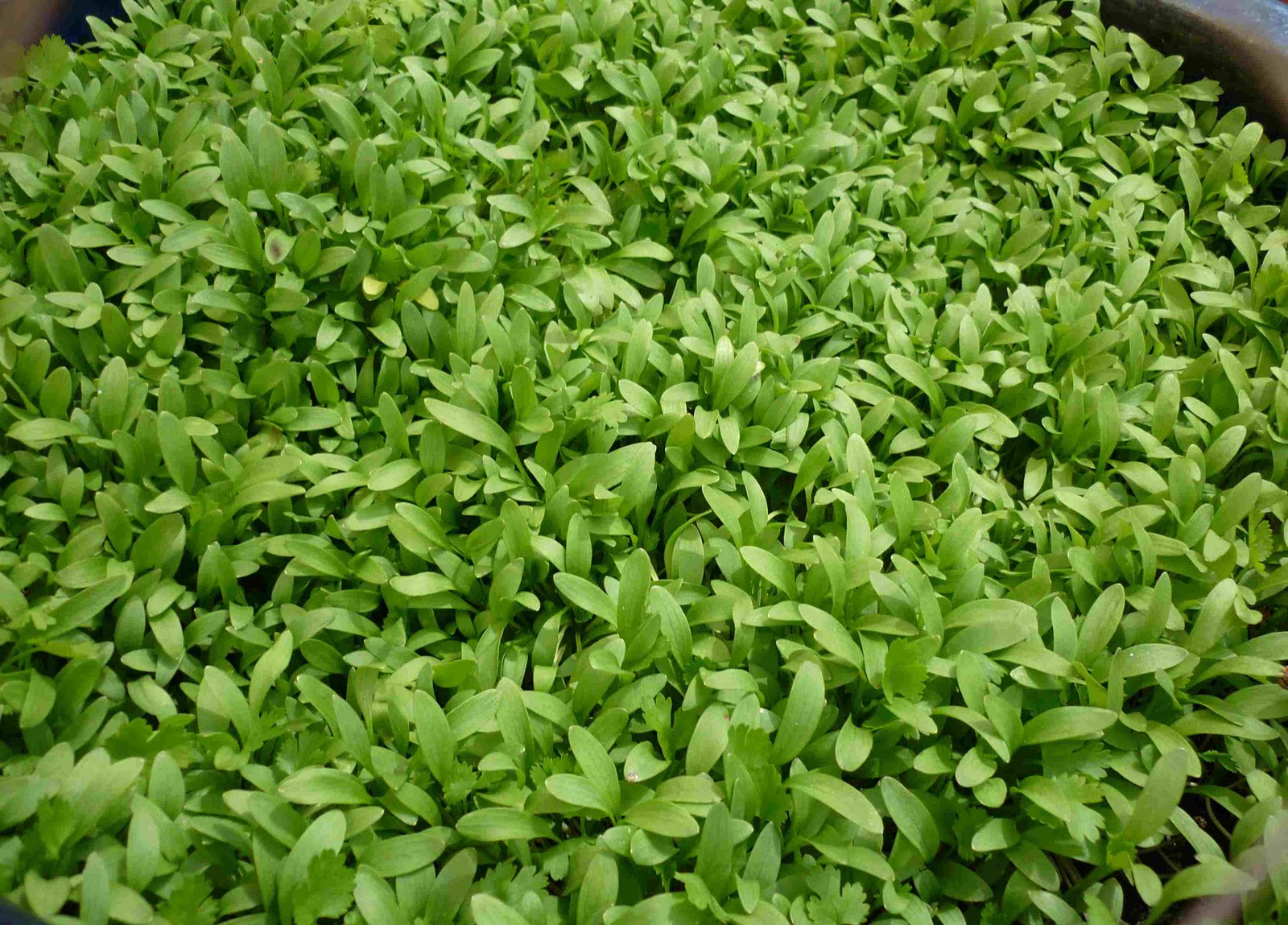
Simpleliving Growing Coriander + Make Your Own Coriander Seed Packets!
Keep the soil moist as the seeds germinate and sprout. Thin the seedlings to about 6 inches apart, and keep them consistently moist as they grow. Article Sources. Cilantro (Coriandrum sativum) is a finicky herb to grow indoors and quickly bolts when it gets warm. Learn to make this fickle plant thrive indoors.
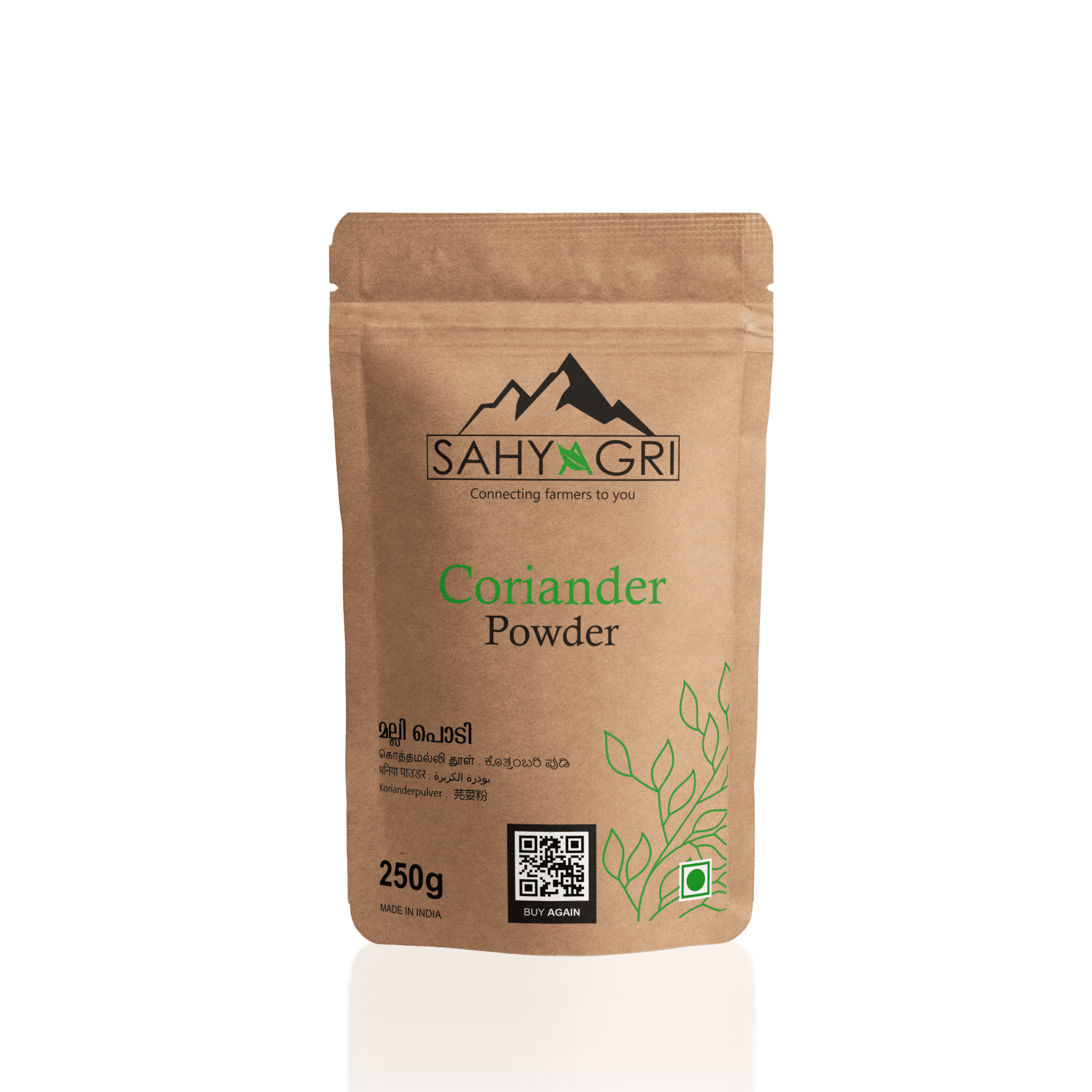
Coriander Powder Sahyagri
Plant in an herb garden or the corner of a vegetable garden. When the weather gets warm, the plant will quickly finish its life cycle and send up a long stalk which will produce blossoms and later seeds. Little plants will sprout during the season and the next spring. Plant the seeds in light, well-drained soil and space them 1 to 2 inches apart.

Dying coriander plant, bought a week ago and was doing okay, started
Understanding the reasons behind your cilantro plant dying can help you take the necessary steps to save it. Cilantro is a popular herb used in many dishes around the world. However, it can be frustrating when your cilantro plant starts to die, and you're not sure why. Understanding the reasons behind your cilantro plant dying can help you take.

watering Why coriander plant is dying? Gardening & Landscaping
Cilantro (also known as coriander) is an annual leafy herb that is relatively easy to grow once you have recreated its preferred growing conditions. The reason for a dying cilantro plant is commonly drought due to too much sun, not watering frequently enough, and fast-draining soil. Overwatering, too much nitrogen fertilizer, or pots without.

Why these coriander plant dying daily layer by layer , another pot is
To give your cilantro room to stretch and flourish, ensure appropriate spacing between plants. Also, be cautious about planting cilantro near larger, more aggressive plants that might steal nutrients, sunlight, and water. By providing ample space, you allow your cilantro to thrive without the stress of competition. Cause #6: Pests and Pathogens

Coriander 100g Home Chef by City Produce
Spacing, Depth, and Support. Seeds should be planted about 1 to 2 inches apart and roughly 1/4 to 1/2 inch deep. Thin seedlings to about 6 to 8 inches apart. Rows of cilantro plants should be at least a foot apart to provide good airflow. A support structure shouldn't be necessary.
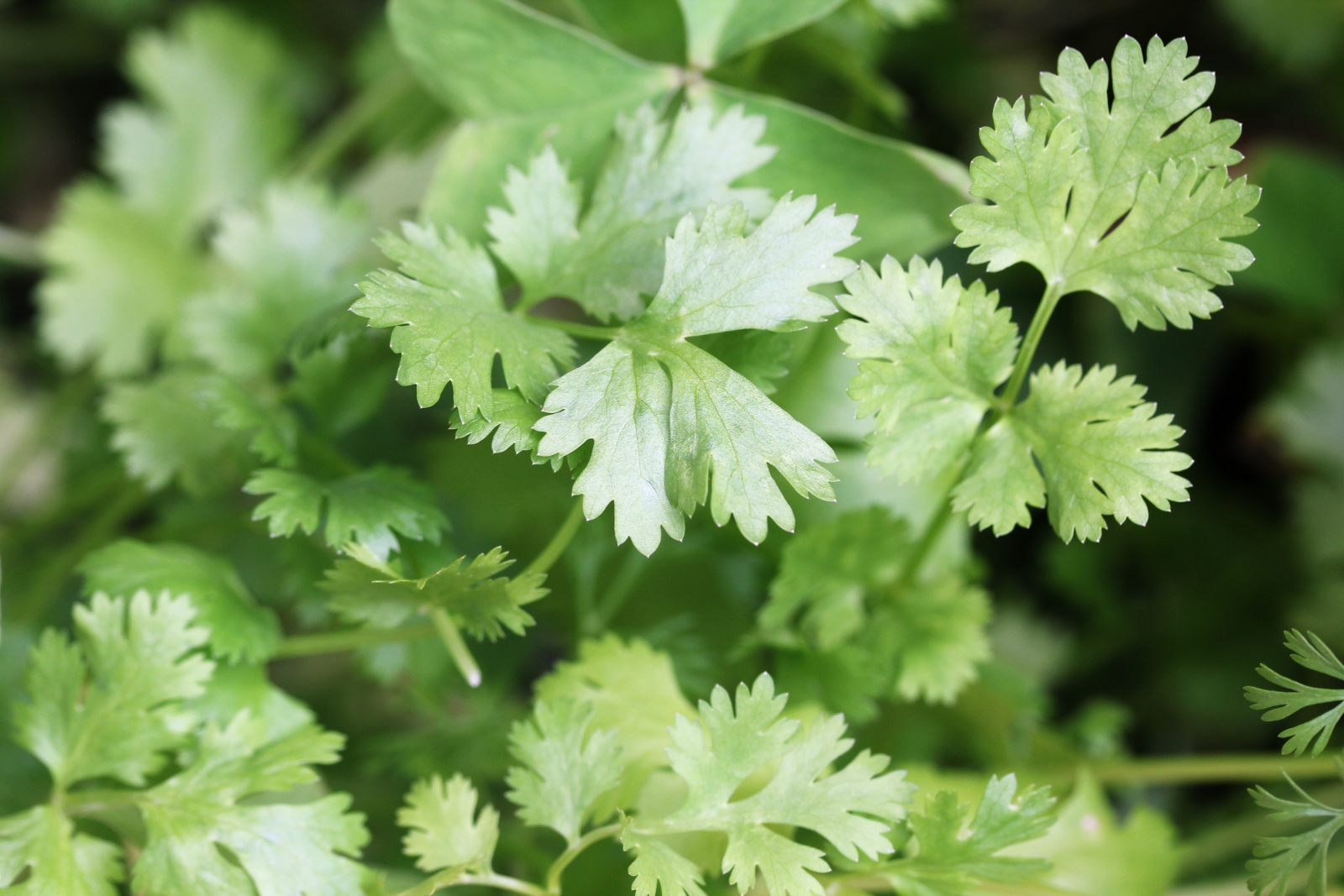
What's the health benefits of using Coriander leaves? Can it be used in
Tag: coriander dying. link to How to Revive a Dying Cilantro Plant. How to Revive a Dying Cilantro Plant. Cilantro (also known as coriander) is an annual leafy herb that is relatively easy to grow once you have recreated its preferred growing conditions. The reason for a dying cilantro plant is.
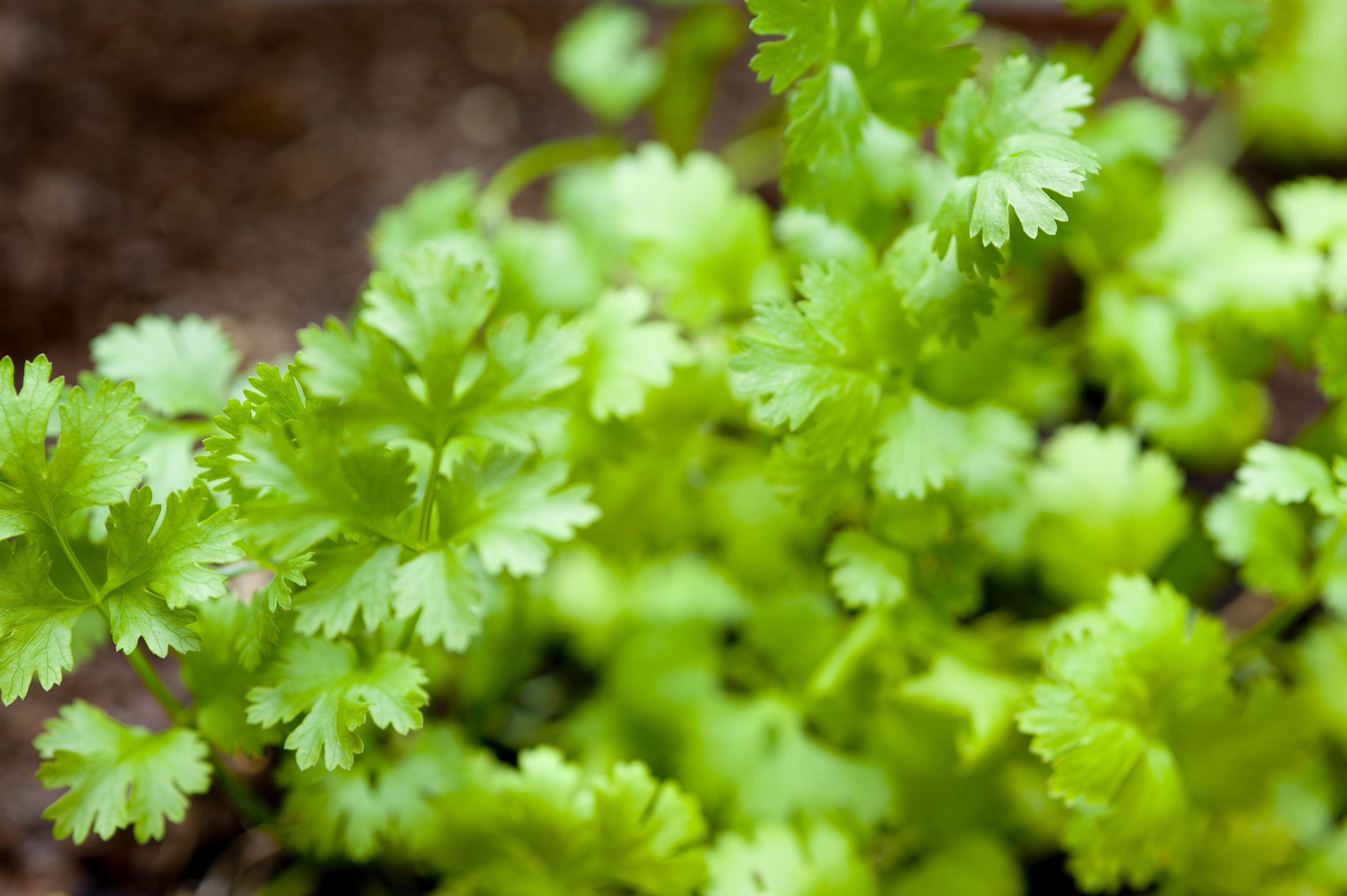
Fresh growing coriander Free Stock Image
Lack of Water. One of the most common reasons for coriander plant death is a lack of water. Coriander plants require consistent and adequate watering to thrive. If your plant is not receiving enough water, its leaves will start to wilt and turn yellow or brown. Additionally, the soil around the plant will become dry and hard.

How to grow coriander Growing tips /Dhaniya/Cilantro/Coriander
When your cilantro is dying, you need to know that there are various possible reasons for it. Your soil can be incorrect, with insufficient nutrients, or you might have planted it during the wrong season. You must find the precise reason why your plant is dying. This is the only way that you can rescue it. 1.

Coriander Plant Main Ingredients in Many Foods Divine Plants
Coriander is an excellent plant for sowing from successionally, so sow regularly every 5 to 6 weeks. Cilantro leaves turning red. The pigment called anthocyanin can cause Cilantro leaves to turn red. When deficient in phosphorus, the plant produces this pigment, an essential factor for healthy plant growth.

McCormick® Gourmet Collection Coriander Seed, Ground (semillas de
The ideal climate for growing coriander/cilantro is 50-80F (10-27C). Keep the potting mix moist, and feed the plant with diluted organic plant feed suitable for vegetables once a week. Harvest a third of the coriander's top growth once a week.

Growing Coriander from seed Time Lapse YouTube
As for the coriander plant yes, it has reached its age since its been flowering and if they go pollinated then you should see the seeds growing. The seeds grow as a small ball then it dies like the rest of the plant you see here. I would say due to the weather and the growing conditions it grew fast and went straight to flowering.

watering Why coriander plant is dying? Gardening & Landscaping
Plant > How to Save a Dying Coriander Plant; Coriander, also known as cilantro, is a popular herb used in cuisines around the world. It's an easy plant to grow, but sometimes it can fall ill and start to wilt. If you've noticed your coriander plant looking sad, don't worry - there are a few things you can do to save it..
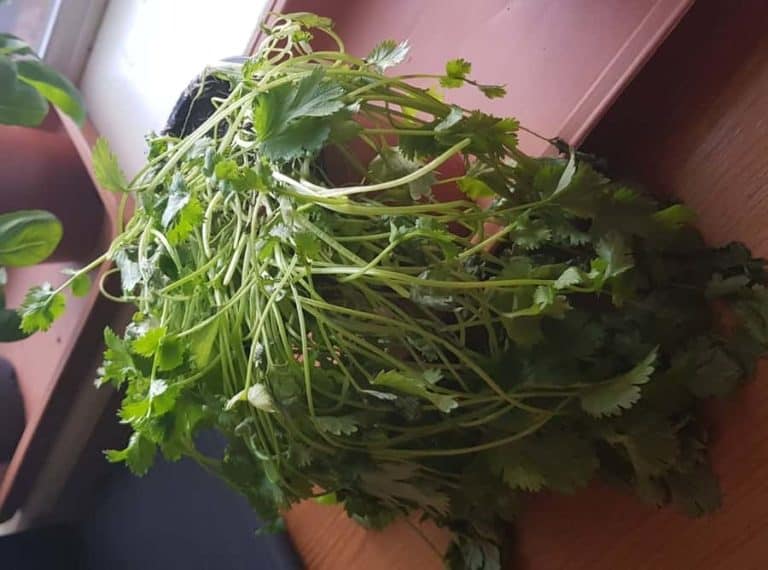
Why is my Coriander Plant Drooping? Garden Expert Guide
Our Plantura Liquid Flower Food is ideal for fertilising coriander, and, because it is applied with water, permeates the roots of the herb directly. Liquid Flower Food, 800ml. (5/5) Perfect for all flowers & balcony plants. Liquid fertiliser for a lush blossom throughout the season. Quick & easy application - child & pet friendly.
FileA scene of Coriander leaves.JPG Wikipedia
Cilantro (Coriandrum sativum), better known as the leaves and stem of the coriander plant, is a versatile and aromatic herb that's often counted among the top herbs worth growing in your garden. However, caring for cilantro plants can be trickier than imagined. This is because a slight change in their growing conditions can vastly impair their growth, causing the cilantro leaves to wilt, turn.
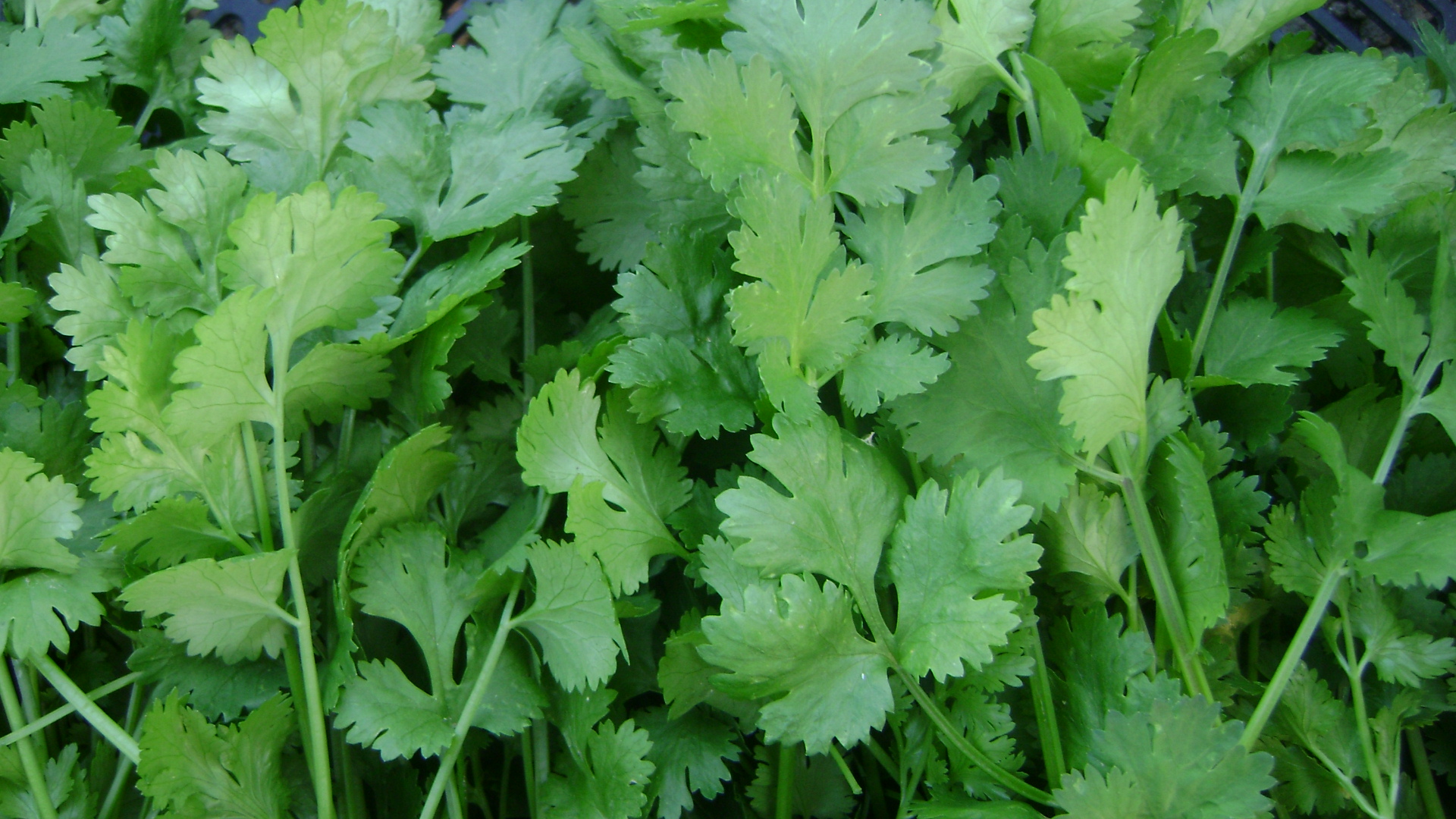
What's the health benefits of using Coriander leaves? Can it be used in
Reason 3: Lack of Nutrients. Pot-grown cilantro mostly experience wilting due to a lack of nutrients. The yellowing of leaves followed by wilting, falling over, and eventually the death of the plant indicates that the plant is nutrient deficient. Feed your cilantro with a low nitrogen fertilizer.